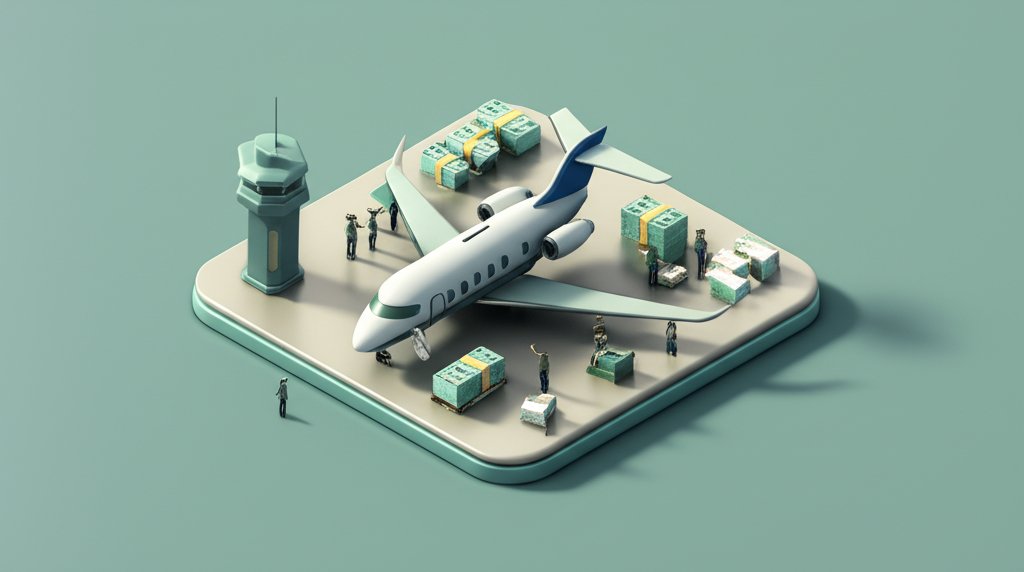Untuk gambaran yang lebih besar dan konteks penuh, pastikan Anda membaca panduan utama kami tentang Warren Buffett Biography: The Oracle of Omahas Investing Life.
For decades, Warren Buffett, the champion of value investing and famously frugal billionaire, publicly criticized the use of private jets. That is, until he bought one. His justification? “It’s changed my life.” But the story of how he went from calling private jets “indefensible” to owning “The Indefensible” offers valuable lessons in adapting to changing needs, recognizing hidden costs, and understanding the true value of time.
At a glance:
- Understand why Buffett initially shunned private jets, emphasizing frugality.
- Learn the specific reasons that led to his eventual purchase of a private jet.
- Explore how Buffett justified the expense by highlighting increased efficiency and time savings.
- Identify the key factors individuals or businesses should consider when evaluating the cost-benefit of private aviation.
- Debunk common misconceptions about private jet ownership for wealthy individuals.
The Frugal Oracle’s Stance Against Private Jets
Warren Buffett built his empire on the principles of value investing and cost consciousness. He famously lived in the same modest Omaha home he purchased in 1958, and his “lunch pail” approach to business extended to travel. Commercial flights were the norm, a tangible symbol of his commitment to shareholder value. He considered private jet ownership a frivolous expense, a luxury that offered questionable returns. This mindset was deeply ingrained in his public persona and leadership style.
His initial stance emphasized the perceived waste of resources associated with private jets. He openly criticized corporate executives for indulging in such luxuries, viewing it as a misallocation of company funds that could be better used for investments or shareholder dividends. This perspective wasn’t just about money; it was about aligning actions with values of prudence and responsibility. To learn more about the values and principles that made Warren Buffett the investor he is today, check out Buffett’s investing life: Full story.
From Critic to Consumer: The Turning Point
So, what changed? What made Warren Buffett, the embodiment of frugality, suddenly embrace the very extravagance he once condemned?
The answer lies in the realization that the true cost wasn’t just the sticker price and maintenance. It was the opportunity cost of his time. Commercial travel proved increasingly time-consuming and disruptive, especially as Berkshire Hathaway’s operations expanded globally. The constant need for connecting flights, airport layovers, and security lines significantly reduced his efficiency.
Furthermore, the demands on Buffett’s time intensified. Attending board meetings, evaluating investment opportunities, and managing Berkshire Hathaway’s diverse portfolio meant traveling to various locations on short notice. Coordinating these trips with commercial flights became a logistical nightmare, hindering his ability to respond quickly to critical business decisions.
“The Indefensible”: Justifying the Acquisition
In 1989, Buffett made the controversial decision to purchase a used Bombardier Challenger 600, a private jet that he humorously christened “The Indefensible.” He acknowledged the irony of his purchase, recognizing that it contradicted his previous statements about the extravagance of private aviation.
His justification, however, was rooted in a pragmatic assessment of the benefits. He argued that the private jet significantly improved his efficiency and productivity. It allowed him to travel directly to destinations, eliminating layovers and reducing travel time. This newfound efficiency translated to more time for business activities, ultimately benefiting Berkshire Hathaway’s shareholders.
Here’s how the equation shifted in Buffett’s mind:
- Time Saved: Reduced travel time and increased flexibility.
- Efficiency Gains: Prompt attendance to meetings, quicker investment decisions.
- Tangible Benefit: Increased productivity and the ability to manage a growing empire more effectively.
He calculated that the increased value created by his more efficient schedule more than offset the cost of owning and operating the jet. He even joked that he started looking at his watch differently, realizing that time truly was money.
The Financials: A Look at the Real Costs
While Buffett emphasized the value of his time, understanding the costs associated with private jet ownership is crucial. These include:
- Acquisition Cost: Purchasing a pre-owned jet like Buffett’s Challenger 600 can range from $3 million to $10 million, depending on age and condition. Newer models can easily exceed $50 million.
- Operating Costs: These include fuel, maintenance, crew salaries, hangar fees, insurance, and landing fees. Expect to spend upwards of $500,000 to $1 million+ per year, depending on usage.
- Depreciation: Aircraft depreciate over time, impacting resale value.
Buffett’s initial reluctance stemmed from focusing solely on these costs. His eventual purchase reflected a broader perspective, incorporating the value of his time and the potential for increased earnings.
Is a Private Jet Right for You (or Your Business)? A Decision Tree
Consider these questions to evaluate the potential benefits versus the costs:
- How much time is spent traveling commercially?
- A. Minimal (less than 50 hours per year).
- B. Moderate (50-200 hours per year).
- C. Significant (200+ hours per year).
- How often do travel schedules change unexpectedly?
- A. Rarely.
- B. Occasionally.
- C. Frequently.
- What is the monetary value of lost productivity due to travel?
- A. Low.
- B. Moderate.
- C. High.
- Are there security or privacy concerns associated with commercial travel?
- A. No.
- B. Minor concerns.
- C. Significant concerns.
If you answered mostly A’s: Private jet ownership is likely not justifiable. Explore efficiency improvements in your existing travel arrangements.
If you answered mostly B’s: Carefully weigh the costs and benefits. Consider fractional ownership or charter options before committing to full ownership.
If you answered mostly C’s: Private jet ownership might be a viable option. Conduct a thorough cost-benefit analysis and explore different aircraft models to find the best fit.
Debunking Common Myths About Private Jet Ownership
- Myth: Private jets are only for frivolous luxury.
- Reality: While luxury is a factor, the primary benefit is often increased efficiency and time savings.
- Myth: All private jets are exorbitantly expensive.
- Reality: Options like fractional ownership and jet cards offer access to private aviation at a lower cost than full ownership.
- Myth: Owning a private jet is always the most cost-effective solution.
- Reality: Chartering or fractional ownership can be more cost-effective for individuals or businesses with limited travel needs.
Q&A: Addressing Common Concerns
Q: Wasn’t Buffett contradicting his own principles by buying a private jet?
A: While seemingly contradictory, Buffett justified the purchase by arguing that the increased efficiency and productivity outweighed the cost. He reframed the expense as an investment in his time and Berkshire Hathaway’s success.
Q: Is private jet ownership a good investment?
A: Not typically in the traditional sense. Aircraft depreciate. The “investment” lies in the increased productivity, efficiency, and, in some cases, security benefits that a private jet can provide.
Q: What alternatives to full ownership exist?
A: Fractional ownership, jet cards, and charter services offer access to private aviation without the full financial burden of ownership. Each option has its own set of pros and cons in terms of cost, flexibility, and availability.
Taking Flight: Key Takeaways
Warren Buffett’s journey from private jet critic to owner illustrates the importance of adapting to changing circumstances and recognizing the true value of time. While his “indefensible” expense might seem out of reach for most, the underlying principles – analyzing costs versus benefits and prioritizing efficiency – are applicable to a wide range of business and personal decisions. By understanding the nuances of private aviation and carefully considering your individual needs, you can determine whether it’s a justifiable investment or a luxurious extravagance.











